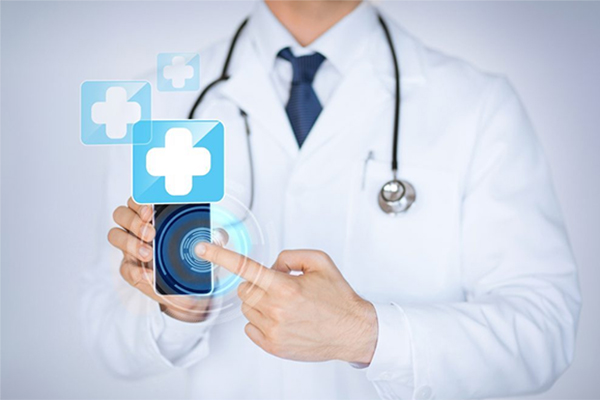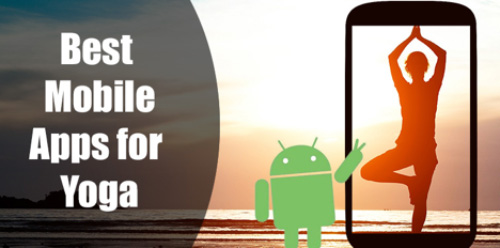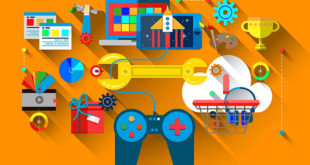Many of us continue to play addictive games and keep up with our social media platforms. But we often forget to eat healthy, sleep 8 hours or maintain healthy weight. In short, our health suffers because of shifting priorities.
However, much like everything else in life, healthcare has also stepped into the digital revolution. Many fantastic things are now possible. Robots can perform surgeries, big data and artificial intelligence are changing the way healthcare is provided, wearables and IoT have advanced significantly, and apps can help you locate doctors and make appointments.
Let’s face it, technology has grown by leaps and bounds. It has allowed us the best healthcare, right at our fingertips.
Many app developers have released ‘health-companion apps’ that help track your health data and preserve it for future use. E.g. Ada, a health companion app is powered by AI, a team of doctors and computer scientists.

Apps for Patients:
Doctor on Demand
Doctor on Demand does exactly what its name suggests. Whenever you need a doctor, a surgeon, a pediatrician, a psychiatrist etc., Doctor on Demand will instantly connect you to one of their many licensed doctors.
Chat via video or audio call and discuss your symptoms without having to wait for an appointment. This app easily lets you get personalized medical advice and prescription. However, it will cost $40 for a 15 minute session. The app is available for both iOS and Android.
First Derm is a neat app that allows you to document your skin problems. The app allows you to send your specific problem to a dermatologist, who responds within 24 hours.
Keeping everything anonymous, you don’t have to log in or create a profile on First Derm. Instead, you can ask questions about your skin conditions such as a rash or a bump without embarrassment. In case your problem needs a doctor’s attention, the app will recommend the nearest dermatologist.
The world’s biggest source of medical information has gone mobile. WebMD’s app is the perfect place to find all you need to know about a certain illness.
And the best thing is that it doesn’t require an internet connection, therefore you can always rely on WebMD. Additional features of this app include the ability to set medication schedules, first aid advice, setting personal fitness goals and locating nearby pharmacies.
Apps for Doctors:
Epocrates:
Epocrates is a medical referencing app that allows you to find out information regarding drug dosage and side effects. Doctors can even contact manufacturers for more information and find alternatives for a specific medicine.
Doctors can use this app to find out drug interactions, quickly calculate BMI and drug dosage. This app can even identify drugs using their physical characteristics. Epocrates is available for both iOS & Android. While most of the content is free, you can unlock its full features for $159.99 per year.
UpToDate:
UpToDate is a clinical decision support resource, which means that it is a medical database that allows doctors to search up various symptoms and figure out the prognosis during their medical practice.
All the information on this app is based on clinical evidence and can even suggest drug dosage. This app is all about bringing information to doctors and their patients at the time of care.
UpToDate is used by over 1.3 million clinicians worldwide. The app can be downloaded for free but access to its full database costs $499 per year.
PEPID:
PEPID is a medical database that can be available at your fingertips. This app allows medical professionals to get all the information they require, whether they are on the go, or in the emergency room.
Healthcare professionals can even earn Continuing Medical Education Credits while using this app to treat patients. PEPID allows you to use its symptom checker for various illnesses, pulls up multidrug interactions and dosage suggestions, all at the touch of a button.
PEPID is updated frequently, so you never have to worry about finding the latest research and studies. Additionally, this app provides several educational videos of clinical procedures and examinations. PEPID also automatically updates all notes and patient information to its cloud storage, where it can be accessed easily by medical professionals.
According to Duet Health, at least 31% of US adults now use their mobile devices to access healthcare information. This number has gone up from 17% in 2015.
Mobile healthcare solves multiple problems, e.g., almost 80% of patients forget what their doctor advised. Healthcare apps can help patients by recording the suggestions by their doctors in an online journal, accessible by both you and your doctor. In this way, mobile healthcare is growing by leaps and bounds.
While the above mentioned apps can’t replace a trip to your doctor’s office, they can certainly help you determine the cause of your illness, keep track of your health data, and the drugs you have taken. Want to create a spam-free app for your health center? We recommend you use the best developers for the job.
About Ashley Rosa: Ashley Rosa is a freelance writer and blogger. As writing is her passion that why she loves to write articles related to the latest trends in technology and sometimes on health-tech as well. She is crazy about chocolates. You can find her at twitter: @Ashrosa2
 CoalesceIdeas Web and graphic design ideas for inspiration
CoalesceIdeas Web and graphic design ideas for inspiration



